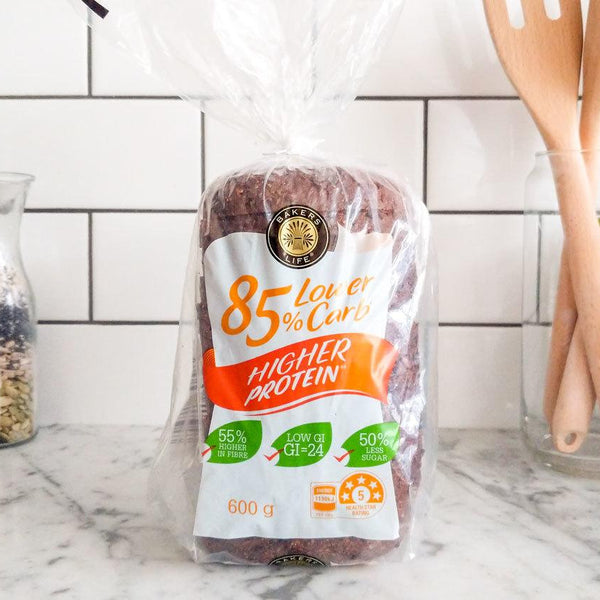
Fuelling Your Body for Weight Loss
When it comes to weight loss, we often think about what we are not going to eat – what foods we might need to say good bye to and how many calories we are going to restrict. How does this process of restriction serve your mental health, and is it effective?
The key to successful weight loss is not about the foods you are restricting, but all about the foods you are choosing to fuel it with.
If you are planning a road trip from A to B, you could fill your car up with the cheapest petrol available and save a little money at first. But your car would burn through this fuel very fast and you’d have to fill it up at the petrol station another one or two times before reaching your destination.
Alternatively, you could fill your car up with the highest quality petrol right from the get-go. Yes, you’d have to invest a little more initially, but this high-quality fuel would burn a lot slower and more efficiently, allowing you to get all the way to where you're going without having to fill up again!
Nutrition is the fuel for your body.
We must eat the right foods every single day to maximise nutrient density and nourish our body with essential proteins, fatty acids, vitamins and minerals.
There is a misconception that we need to refuel our tanks with low-calorie foods at regular intervals across the day to “boost” our metabolism. Every time we munch down on these low-calorie (low-fat) foods, we get a rise in blood sugar (glucose) and a corresponding surge in the hormone, insulin.
Insulin is known as the “fat-storage hormone” because it signals our body to turn fat-burning “off” and fat-storage “on”. So, if we want to get all the way from point A to point B without having to fill up our fuel tanks over and over again – we need a premium source of fuel that is going to give us more bang for our buck!
There are two primary sources of fuel you can choose to run your body on:
 Comparing the post-prandial effects of dietary carbohydrate, protein and fat on blood glucose levels.
Consuming a low-calorie diet that is high in dietary carbohydrate, moderate in protein and low in fat, forces us to use glucose as our primary fuel source and thus rely on regular top-ups across the day. These top-ups are like road blocks to using our stored body fat.
Alternatively, if we eat a diet that is rich in healthy sources of fat, then we can use fat as our primary fuel source and access stored body fat. Because most of us have a virtually unlimited supply of stored body fat at any one time – this way of fuelling our body means that we aren’t dependent on regular top ups across the day. Our body can tap into its own energy stores and we can burn fat for fuel all day long without feeling tired, hungry, irritable, anxious, shaky or depressed.
What are healthy sources of fat?
What is the take-home message of this article? Don’t be afraid of fat. Healthy sources of fat are fats that are minimally processed, anti-inflammatory (or neutral) and rich in flavour. They should make up a generous portion of your daily dietary intake.
Healthy fats include, but are not limited to:
Comparing the post-prandial effects of dietary carbohydrate, protein and fat on blood glucose levels.
Consuming a low-calorie diet that is high in dietary carbohydrate, moderate in protein and low in fat, forces us to use glucose as our primary fuel source and thus rely on regular top-ups across the day. These top-ups are like road blocks to using our stored body fat.
Alternatively, if we eat a diet that is rich in healthy sources of fat, then we can use fat as our primary fuel source and access stored body fat. Because most of us have a virtually unlimited supply of stored body fat at any one time – this way of fuelling our body means that we aren’t dependent on regular top ups across the day. Our body can tap into its own energy stores and we can burn fat for fuel all day long without feeling tired, hungry, irritable, anxious, shaky or depressed.
What are healthy sources of fat?
What is the take-home message of this article? Don’t be afraid of fat. Healthy sources of fat are fats that are minimally processed, anti-inflammatory (or neutral) and rich in flavour. They should make up a generous portion of your daily dietary intake.
Healthy fats include, but are not limited to:
-
- Glucose (from dietary carbohydrate or made in your liver)
- Fat (from dietary fat or stored body fat)
 Comparing the post-prandial effects of dietary carbohydrate, protein and fat on blood glucose levels.
Comparing the post-prandial effects of dietary carbohydrate, protein and fat on blood glucose levels.-
- eggs
-
- nuts and seeds
-
- avocado
-
- olives and olive oil
-
- fish and seafood
-
- meat
-
- dairy (e.g., cheese, milk, yoghurt)
-
- coconut products (e.g., desiccated coconut, coconut milk, coconut yoghurt, coconut oil)
- The Protein Bread Co. products (e.g., pizza base, muffins, bread, cookies)


